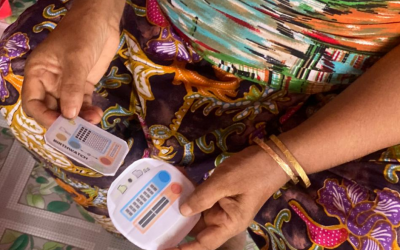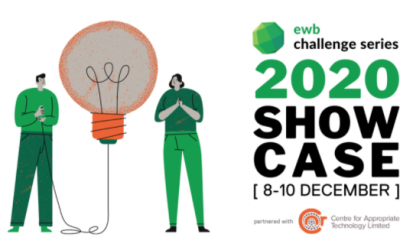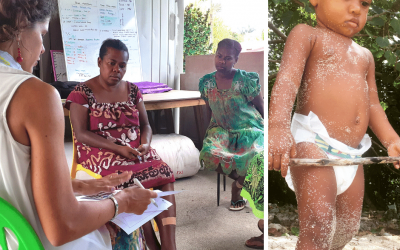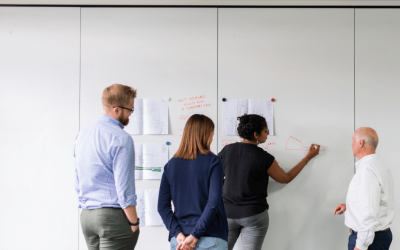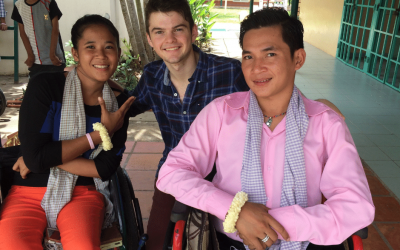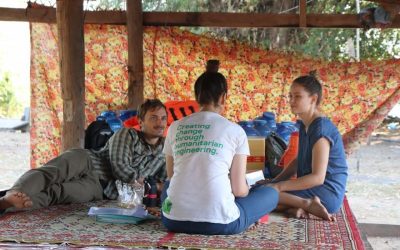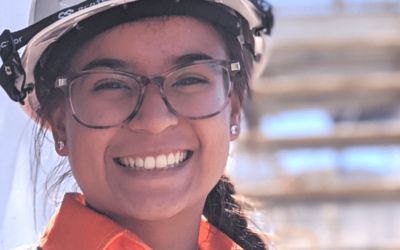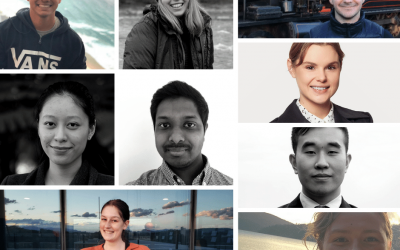Impact Stories
Making change happen across Australia and Asia Pacific.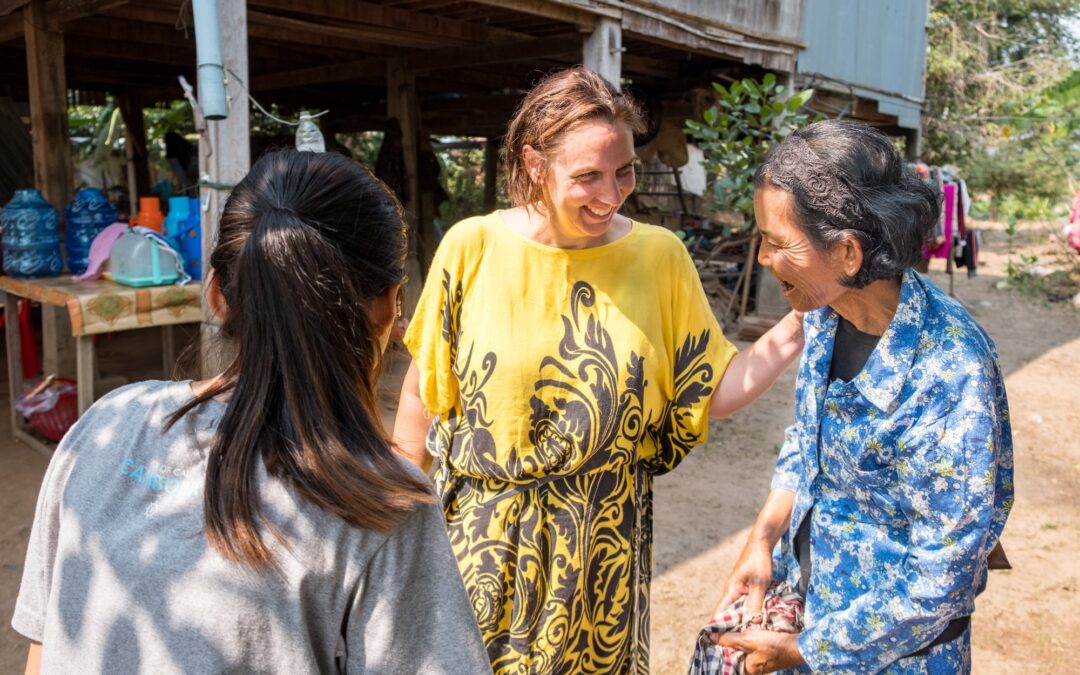
A message from EWB CEO, Eleanor Loudon
As Eleanor wraps up six years as EWB Chief Executive Officer this month, she shares some reflections about her experience leading the organisation over the years: An Indigenous elder on an island in Kratie, Cambodia, once took me aside and asked directly, what can...

A message from EWB CEO, Eleanor Loudon
As Eleanor wraps up six years as EWB Chief Executive Officer this month, she shares some reflections about her experience leading the organisation over the years: An Indigenous elder on an island in Kratie, Cambodia, once took me aside and asked directly, what can...
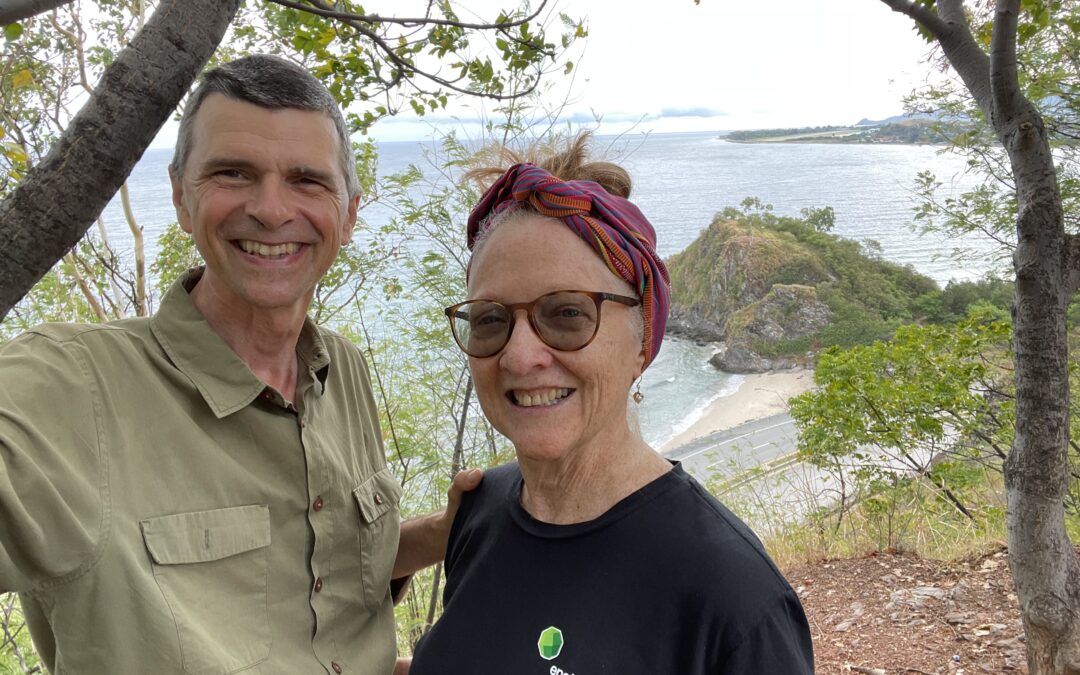
Global travels and local impact – Bea Duffield’s volunteering journey
Bea Duffield isn’t an engineer, but her experience spans almost everything else. From her academic background in scientific research to her career across both private enterprise and government sector, she has worked in a range of diverse fields including resource development, communications and marketing, policy, and infrastructure development. Her varied career has taken her across the globe, from her home base in Brisbane to Vietnam, Jordan, Sri Lanka, Indonesia, Fiji, Papua New Guinea and Tonga.
BirthWatch – from open challenge to mobilised design
Open Challenges are a mechanism that forms part of EWB Australia’s new Mobilisation program. An Open Challenge focuses on a discrete part of a real-life engineering problem, allowing our network to engage in crowd-sourced ideation, creativity and innovation. The...
The EWB Challenge Showcase 2020 – it’s a wrap!
The EWB Challenge Showcase for 2020 has wrapped up three days of online hosted pitches, presentations and webinars, celebrating the hard work of over 10,000 university students. Our partner for this year, the Centre for Appropriate Technology (CfAT), has been inspired by student ideas and insights, some of which may influence our technology development work into 2021, which we will be looking at together soon. All student project reports, summaries and pitches from the EWB Challenge are shared with CfAT – and the EWB team will be looking at them with CfAT to explore what’s next.
Vanuatu: World First Disposable Nappy Ban
Engineers Without Borders Australia (EWB) is working with local organisation, Mama’s Laef and Vanuatu’s Ministry of Health to implement Vanuatu’s world first disposable nappy ban. Vanuatu is setting out to become the first nation to ban disposable nappies. With an estimated 20,000 babies and toddlers on Vanuatu’s 65 islands, disposable nappies are the single largest contributing item to waste in Vanuatu’s capital, Port Vila. And their disposal in rural and remote areas is handled in ways that sometimes are as potentially damaging to a communities’ health as open defecation. Which is where EWB’s Tumble Drum Project comes in. A prototype will be rolled out in 2021 in order to test the design, iterate, and ultimately scale the non-electric technology.
EWB organisations worldwide unite in call for professional engineering competencies reform
With just ten years to meet the UN Sustainable Development Goals, international branches of Engineers Without Borders, including Engineers Without Borders Australia, are uniting to call for a professional engineering competencies reform. The organisations are united...
Student research leads to award-winning thesis
In 2019, as a final year Systems Engineering student at the Australian National University (ANU), Liam Highmore was accepted into EWB’s Research Challenge – the final-year offering in the EWB Challenge series. EWB’s unique research approach collaborates with community...
EWB wins award for engineering education excellence
The Australasian Association for Engineering Education (AAEE) has recognised EWB and its University partners team for engineering excellence for the Humanitarian Design Summits in the Engineering Education Engagement category. The awards, presented at the AAEE Annual...
How terrible traffic lights led Hannah to an Influencer Fellowship
When Hannah was seven years old, she had a massive pet hate. Traffic lights. Being driven around in the backseat of the family car, the need to stop at a traffic light was always a source of frustration. Why did you need to wait for so long? There’s no traffic coming,...
The volunteers that mobilise our volunteers!
Throughout 2020 our in-country overseas volunteering program was halted due to COVID-19. But it hasn’t hampered our ability to support our community programs. This is where our newly recruited mobilisation team has come to the fore. Coordinating a range of projects,...


